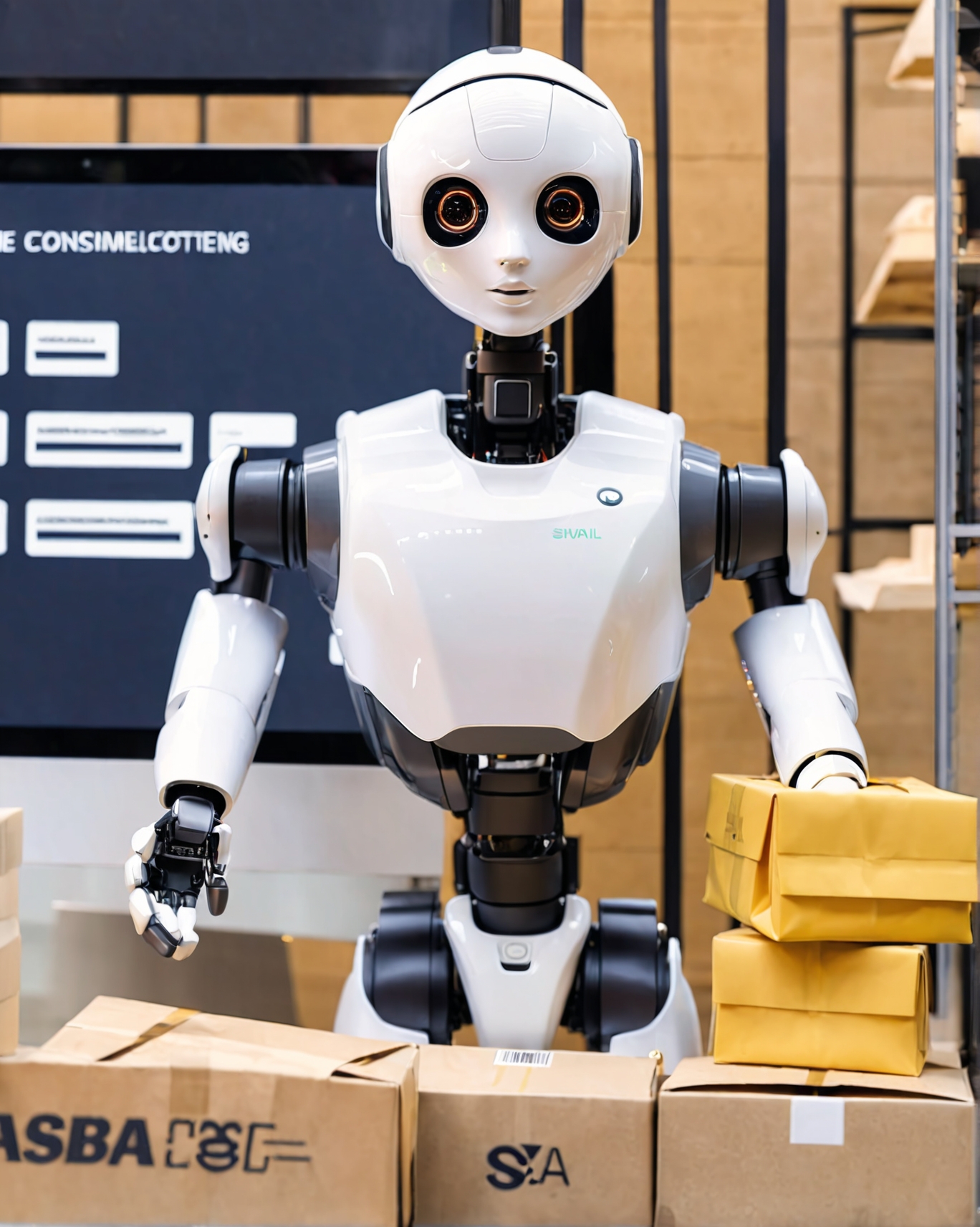How AI and Automation Are Revolutionizing E-commerce
 Rohit Bahroonani
Rohit Bahroonani
Artificial Intelligence (AI) and automation are transforming the e-commerce landscape, reshaping how businesses operate and interact with their customers. From personalized shopping experiences to supply chain optimization, these technologies have made it easier for brands to manage operations, increase efficiency, and drive sales. As more companies embrace AI and automation, the future of e-commerce is set to become even more exciting and efficient.
Let’s explore how AI and automation are revolutionizing e-commerce and the benefits they offer to businesses and consumers alike.
1. Personalized Shopping Experiences
One of the most significant ways AI is transforming e-commerce is through personalization. AI algorithms analyze customer behavior, browsing history, and past purchases to deliver tailored product recommendations. By providing personalized shopping experiences, brands can engage customers on a deeper level, leading to increased conversion rates and customer loyalty.
For instance, AI-powered recommendation engines can suggest complementary products, offer personalized discounts or show relevant promotions based on user preferences. This level of customization enhances the shopping experience and makes customers feel more connected to the brand.
2. Chatbots and Virtual Assistants
AI-powered chatbots and virtual assistants have become an integral part of the e-commerce customer service experience. These tools provide instant, 24/7 support, answering customer queries, guiding them through the purchasing process, and resolving issues in real-time. This not only improves customer satisfaction but also reduces the need for human intervention in routine tasks.
Chatbots can handle everything from tracking orders to recommending products, creating a seamless and efficient customer service experience. As AI continues to advance, chatbots are becoming more sophisticated, capable of handling complex inquiries and learning from past interactions.
3. Inventory and Supply Chain Optimization
Managing inventory efficiently is one of the most critical challenges in e-commerce, and this is where automation shines. AI and automation tools can predict demand patterns, optimize stock levels, and reduce the risk of overstocking or stockouts. By analyzing sales trends and customer behavior, these tools help businesses make informed decisions about when to reorder products, ensuring a smooth supply chain process.
Automation also plays a key role in warehouse management, where robots and automated systems are used to pick, pack, and ship orders faster and more accurately. This streamlines fulfillment processes reduces human error, and ultimately enhances customer satisfaction.
4. Dynamic Pricing and Competitive Analysis
AI algorithms are revolutionizing how businesses set their prices. Dynamic pricing tools use AI to analyze competitors' prices, market demand, and other factors in real-time, allowing businesses to adjust their prices accordingly. This ensures that they remain competitive while maximizing profits.
By continuously monitoring the market, AI-powered pricing tools can help businesses find the perfect balance between offering competitive prices and maintaining profitability. This approach also reduces the need for manual price adjustments and allows businesses to respond quickly to market changes.
5. Predictive Analytics for Marketing and Sales
AI-driven predictive analytics is a powerful tool that helps businesses anticipate customer behavior and make data-driven marketing decisions. By analyzing customer data, purchase history, and browsing patterns, AI can predict what products customers are likely to buy when they will make a purchase, and how they prefer to shop.
This information enables businesses to create targeted marketing campaigns, personalized offers, and optimize email marketing strategies. Predictive analytics helps businesses focus their marketing efforts on high-value customers, improving ROI and driving sales growth.
6. Fraud Detection and Security
With the rise of online transactions, fraud prevention has become a major concern for e-commerce businesses. AI and machine learning algorithms can detect suspicious activities and fraudulent transactions in real-time. By analyzing user behavior, transaction patterns, and other data points, AI tools can identify anomalies and flag potential fraud before it happens.
This proactive approach to security not only protects businesses from financial loss but also enhances customer trust and confidence in the brand.
Conclusion
AI and automation are driving the future of e-commerce, offering unprecedented opportunities for businesses to streamline their operations, enhance customer experiences, and increase profitability. From personalized shopping to supply chain optimization, the impact of these technologies is vast and continues to grow. As businesses embrace AI and automation, they will gain a competitive edge in the rapidly evolving digital marketplace.
To learn more about how AI-driven e-commerce solutions can transform your business, explore automation strategies for e-commerce and stay ahead in the fast-paced world of online retail.
Subscribe to my newsletter
Read articles from Rohit Bahroonani directly inside your inbox. Subscribe to the newsletter, and don't miss out.
Written by

Rohit Bahroonani
Rohit Bahroonani
I help businesses and individuals leverage the power of digital marketing to grow their online presence. With a focus on SEO, content creation, and video storytelling, I enjoy sharing practical insights and strategies that deliver real results. I'm also passionate about fitness and enjoy providing tips for maintaining a healthy lifestyle. Whether it’s digital marketing tactics or fitness advice, I’m here to offer practical guidance. Ask me anything about online course creation, SEO strategies, YouTube growth, or fitness tips!